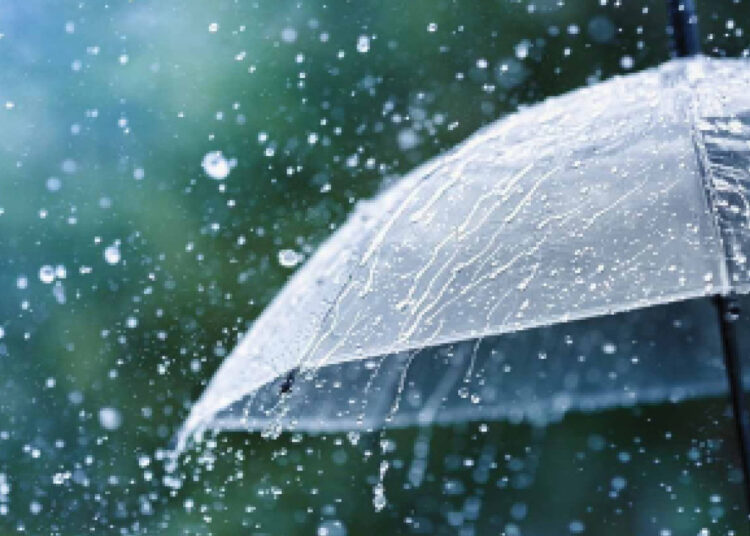As the rainy season approaches, many Nigerians welcome the cooler temperatures, fresh greenery, and break from the intense heat. However, the season also brings significant challenges, including flooding, power outages, and an increased risk of disease. Whether you’re living in a bustling city or a rural village, knowing what to expect and planning ahead can help you navigate the months ahead more comfortably and safely
Weather Patterns To Expect
The rainy season in Nigeria usually begins in late March and lasts until October, bringing moderate to heavy rainfall across most parts of the country. However, climate change has made these weather patterns less predictable. It’s now common to see flash floods, extended periods of heavy rain, and unexpected dry spells during the season. Urban areas such as Lagos, Port Harcourt, and Abuja often struggle with waterlogging and traffic congestion, while rural communities deal with issues like soil erosion and damage to crops.
The Nigeria Meteorological Agency (NiMet) often warns of unusual weather patterns during the rainy season—including thunderstorms, lightning strikes, and sudden cold spells. This year, forecasts predict heavier-than-usual rains in some parts of the country, with potential flooding risks in low-lying and coastal areas.
Health Concerns During the Rainy Season
The damp and humid conditions of the rainy season can lead to a surge in various illnesses. One primary concern is malaria, as stagnant water becomes a breeding ground for mosquitoes. Waterborne diseases such as cholera, typhoid, and dysentery also rise due to contaminated water sources and poor sanitation. Respiratory infections become more common, especially among children and the elderly, due to the cold and damp weather.
To stay healthy:
Use insecticide-treated nets and repellents to protect against mosquitoes.
Boil or treat drinking water, especially if relying on local wells or surface water.
Ensure proper drainage around your home to reduce stagnant water.
Keep warm and dry, especially during sudden temperature drops.
Wash your hands frequently, as germs spread faster in wet conditions.
Safety Measures at Home and On the Road
Heavy rainfall increases the risk of structural damage, especially to buildings with weak roofing or poor drainage systems. Routine checks and repairs before the season peaks are essential. Fix leaking roofs, clear out gutters, and ensure drainage systems are not clogged. Elevate electrical appliances in flood-prone homes to reduce the risk of damage or electrocution.
On the road, the rainy season brings slippery surfaces, poor visibility, and frequent traffic gridlocks. Motorists are advised to:
Check their tires and brakes regularly.
Avoid speeding, especially during or after heavy rainfall.
Turn on headlights in low-visibility conditions.
Avoid driving through flooded roads, which may hide potholes or open drainages.
Pedestrians should also tread cautiously, wear water-resistant footwear, and carry umbrellas or raincoats.
Flood Preparedness
Flooding remains one of the biggest threats during the rainy season. From submerged roads to displaced communities, the effects can be devastating. If you live in a flood-prone area:
Stay informed with weather alerts from NiMet and local radio stations.
Have an evacuation plan in place.
Store important documents in waterproof containers.
Keep emergency items like a flashlight, power bank, and first-aid kit handy.
For those with farms or gardens, consider raised beds or flood-tolerant crops, and ensure proper channels for water to flow away from your land.
Mental and Emotional Wellness
The constant rains reduced sunlight, and confinement indoors can affect one’s mental state. Seasonal Affective Disorder (SAD), though more common in colder climates, can also affect people during gloomy weather periods. Combat the rainy blues by:
Staying active indoors through home exercises or stretches.
Connecting with loved ones, especially when feeling isolated.
Keep your space bright, clean, and well-ventilated.
Maintaining a positive routine with scheduled tasks and moments of relaxation.
The rainy season can be refreshing or frustrating, depending on how prepared you are. By anticipating possible disruptions and taking proactive steps in health, safety, and home management, you can easily navigate the months ahead. Let the rains come—not as a threat but as an opportunity to slow down, regroup, and embrace nature’s rhythm with mindfulness.











